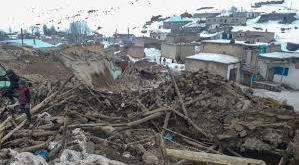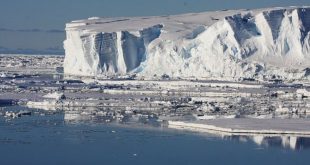Half of ice sheet’s surface thought to be melting as African plume that baked Britain now blasts the Arctic
“In early July I was on an expedition to northeast Greenland in Kronprins Christian Land at 80 degrees north, and we measured a temperature of 17C in the shade. In addition, Alert, a military base and meteorological station at the northern tip of Ellesmere Island in the Canadian Arctic at 82 degrees north, experienced a temperature of 21C in mid-July.”
And Dr Twila Moon, of the University of Colorado’s National Snow and Ice Data Centre, told The Independent that temperatures over large areas of the ice sheet reached 5C or more above average on Wednesday.
Ruth Mottram, of the Danish Meteorological Institute, told CNN this week that an estimated 180 billion tons of Greenland’s ice had melted into the ocean since 1 July, raising sea levels by about 0.5mm.
The current level of melting is a symptom of global climate change, said Dr Ryan Neely of the National Centre for Atmospheric Science, a research centre in Leeds. He said conditions at the Summit observation station at the top of Greenland’s ice sheet “have been the most extreme we have ever observed”.
He told The Independent: “We have observed melt events before at Summit but never the multiple days of melt that we have observed this week. Previous to the last couple of days, we had a melt event on 12 June, 2019. Before that was on 11 July, 2012. Before that was in 1889.”
However, one researcher sounded a note of caution regarding the severity of the current weather.
While record-breaking temperatures in parts of the northern hemisphere were a “sure sign” of climate change, said Professor Jeffrey Kargel of Arizona’s Planetary Science Institute, “at this time we cannot say that a couple of days of hot weather in Greenland will result in a sea level change, or that a subsequent period of colder weather than normal might negate this heatwave”.
He added: “We need to wait for scientists to go about producing, vetting, and releasing scientific results before we can say that any significant changes have occurred to the melting rate due to this heatwave.”
News of Greenland’s heatwave came as the UK’s Met Office revealed the country’s 10 hottest years on record had all occurred after 2002. None of the 10 coldest have taken place after 1963, analysis showed.
The Independent
 Lebanese Ministry of Information
Lebanese Ministry of Information



